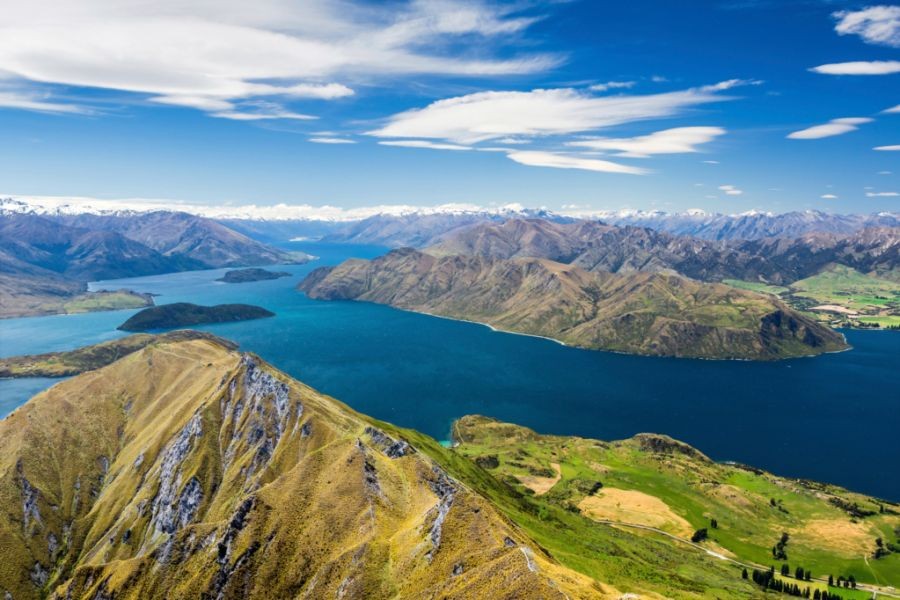In recent years, New Zealand has emerged as a pivotal player in the Pacific Island region, adopting a multifaceted approach to influence and aid its neighboring island nations. This strategic positioning is not merely about geographical proximity but is deeply rooted in shared history, economic interests, and a commitment to regional stability. As a healthcare consultant, understanding these dynamics is crucial, as they have significant implications for healthcare policies and economic collaborations within the Pacific region.
1. Economic Partnerships and Aid Initiatives
New Zealand has consistently demonstrated its commitment to the economic development of Pacific Island nations through aid and strategic partnerships. According to the New Zealand Ministry of Foreign Affairs and Trade, the country allocated NZD 1.5 billion in official development assistance (ODA) for the Pacific from 2018 to 2021. This aid focuses on enhancing infrastructure, education, and healthcare—key areas that directly impact the socio-economic conditions of these island nations.
Case Study: The Cook Islands Partnership
One notable example is New Zealand's partnership with the Cook Islands. Recognizing the Cook Islands' vulnerability to climate change and economic instability, New Zealand has invested significantly in sustainable infrastructure and renewable energy projects. By 2025, these initiatives are expected to reduce the Cook Islands' reliance on fossil fuels by 50%, according to a report by the Pacific Cooperation Foundation.
Takeaway: For healthcare consultants, these economic engagements highlight potential areas for collaboration, particularly in healthcare infrastructure and technology transfer. New Zealand's focus on sustainable development can serve as a model for integrating health and environmental policies.
2. Strengthening Political Ties and Diplomatic Engagement
New Zealand's diplomatic efforts in the Pacific are marked by active participation in regional forums such as the Pacific Islands Forum (PIF) and the Polynesian Leaders Group. These platforms facilitate dialogue on critical issues like climate change, security, and economic development.
Real-World Example: Pacific Reset Policy
Launched in 2018, the Pacific Reset policy marked a significant shift in New Zealand's foreign policy towards the Pacific Islands. The policy emphasizes respectful partnerships and mutual benefits, moving away from a donor-recipient model. This approach has been praised for fostering trust and collaboration, as reported by the Lowy Institute.
Takeaway: For consultants, understanding the nuances of these diplomatic engagements can aid in navigating partnerships and aligning healthcare projects with broader geopolitical objectives.
3. Cultural and Educational Exchanges
New Zealand's influence in the Pacific is also evident through cultural and educational exchanges. These initiatives aim to strengthen people-to-people ties and foster mutual understanding.
Case Study: New Zealand Scholarships for Pacific Students
Through its scholarship programs, New Zealand offers numerous opportunities for Pacific students to study in New Zealand. According to Education New Zealand, in 2020 alone, over 500 scholarships were awarded to students from Pacific Island nations, enhancing their skills and contributing to their home countries' development upon return.
Takeaway: Such educational exchanges can be leveraged to enhance healthcare education and training, addressing skill gaps in the Pacific health workforce.
4. Healthcare Collaborations and Support
New Zealand plays a crucial role in supporting healthcare systems across the Pacific. This support ranges from providing medical supplies to facilitating training programs for healthcare professionals.
Case Study: The Pacific Health Fund
The Pacific Health Fund, established by New Zealand, aims to improve health outcomes in Pacific nations by funding initiatives that address communicable diseases and maternal health. A report by the World Health Organization highlights that these efforts have significantly reduced infant mortality rates in targeted regions.
Takeaway: For healthcare consultants, these initiatives offer opportunities to engage in collaborative projects that enhance healthcare delivery and outcomes in the Pacific.
5. Climate Change Advocacy and Environmental Initiatives
Climate change poses a significant threat to Pacific Island nations, and New Zealand has been at the forefront of advocating for climate action. The country's efforts include supporting renewable energy projects and providing aid for climate resilience.
Real-World Example: The Pacific Climate Change Centre
Located in Samoa, the Pacific Climate Change Centre, funded by New Zealand, serves as a hub for climate change research and capacity building. It aims to empower Pacific nations with the knowledge and tools needed to combat climate change effectively.
Takeaway: These environmental initiatives are intrinsically linked to public health, as climate change impacts health outcomes. Consultants can explore ways to integrate climate resilience into healthcare planning and policy-making.
Common Myths & Mistakes
- Myth: New Zealand's aid is purely altruistic. Reality: While altruism plays a role, New Zealand's aid is also strategically aligned with its economic and geopolitical interests, ensuring regional stability and fostering trade relations.
- Myth: Pacific Island nations are passive recipients of aid. Reality: These nations actively engage in shaping aid agendas, ensuring that assistance aligns with their developmental goals and priorities.
- Myth: New Zealand's influence is limited to economic aid. Reality: New Zealand's influence extends to cultural, educational, and environmental sectors, emphasizing a holistic approach to regional engagement.
Conclusion
New Zealand's multifaceted approach to influencing Pacific Island affairs underscores the importance of strategic partnerships, cultural exchanges, and sustainable development. For healthcare consultants, these initiatives offer numerous opportunities for collaboration and innovation in healthcare delivery and policy-making. By understanding the broader geopolitical and economic context, consultants can better align their efforts with regional priorities and contribute to the sustainable development of Pacific Island nations.
What’s your take? How can healthcare consultants further leverage these initiatives to improve health outcomes in the Pacific? Share your insights below!
People Also Ask
- How does New Zealand's influence impact Pacific Island healthcare? New Zealand's influence enhances healthcare infrastructure and training, leading to better health outcomes in Pacific Island nations through collaborative projects and funding.
- What are the benefits of New Zealand's educational exchanges with the Pacific? Educational exchanges build capacity by equipping Pacific students with skills and knowledge, contributing to their home countries' social and economic development.
- How does climate change advocacy relate to healthcare in the Pacific? Climate change impacts health, and New Zealand's advocacy supports resilience-building initiatives, ensuring sustainable healthcare delivery in vulnerable regions.
Related Search Queries
- New Zealand Pacific aid initiatives
- New Zealand Pacific healthcare collaborations
- New Zealand Pacific climate change advocacy
- New Zealand’s role in the Pacific Islands Forum
- New Zealand scholarships for Pacific students































